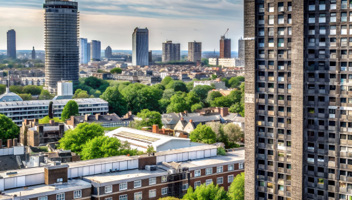We recently wrote about the different routes Scotland and England are taking to building safety reform: Building safety reform: different route maps for England and Scotland.
We focused on the future as we discussed the Building Safety Bill, the Building standards (fire safety) - external wall systems: consultation and the new Scottish Advice Note: Determining the fire risk posed by external wall systems in existing multi-storey residential buildings.
However, when the topic under discussion is building safety, we can not only look to the future. Fixing the problems of the past is just as important. When solving most problems there are three logical steps:
- establishing the facts;
- agreeing a solution; and
- deciding who pays for that solution.
It is four years since the Grenfell tower fire. In September, the Scottish Government published a report on the use of external high pressure laminate (HPL) panels across eight sectors including schools, care homes, hospitals and tower blocks.
It reports on data from many sectors, residential and non-residential. So far, 393 buildings have been identified with HPL panels. It notes that HPL panels do not present the same risk as Aluminium Composite Material (ACM) panels (the type used on Grenfell), but the external wall, including HPL, should be considered as part of the holistic fire risk assessment. The report concludes with recommendations for owners and managers of buildings including using the recent Scottish Advice Note to assess and manage the risk.
So progress is being made with the first step – establishing the facts. The second step – agreeing solutions – will be for the highly skilled construction professionals to advise on.
It is the third step that may require legal input: who pays?
The Scottish Government has said that they are committing their fund of £97 million to funding Single Building Assessments and remediation costs. However, they have also said that they “cannot guarantee that there will be enough public funds to support all the work that is needed, and other parties such as developers must continue to play their part where construction is not as it should have been”.
Owners who find themselves without access to government funding may need to explore whether they have any rights, contractual or delictual, which can be pursued against others such as developers. Unfortunately, this is when the law of time bar in Scotland potentially clashes with those who look to others for compensation or solutions. In Scotland, claims are time barred after 5 years. When does that 5 year period start? Much earlier that you would think and, while every calculation of the starting date is highly fact specific, in contractual situations it could possibly be as soon as the defective cladding was installed and paid for. Pursuing cladding claims will therefore not be an easy task in Scotland since the law of time bar is likely to be the first obstacle in the way of a claim – and it could be a difficult obstacle to clear.
In England, the Building Safety Bill, as currently drafted, increases retrospectively the time bar period to 15 years. If that Bill is passed, it will create a deep divide between the options available to those with cladding problems in England and Scotland. For those in Scotland, the message is a clear. If, as a result of a Single Building Assessment or the recent report, you are concerned about funding remedial work - or indeed concerned about your exposure to claims - it is time to take legal advice.
Related News, Insights & Events

Courts provide guidance on “reasonability” in compensation on termination recovery
A new decision from the Privy Council has provided some guidance on the limits of provisions around the recovery of supply chain costs upon termination for convenience or employer default.

UK government’s response to Grenfell inquiry phase 2 – 10 takeaways
On 26 February 2025, the UK Government published its much anticipated 80-page response to the Phase 2 Report of the Grenfell Tower Inquiry, published in September 2024.

Time for a change: New Scottish time bar law in force 28 February 2025
Significant changes to the Scottish law of time bar are in force on 28 February 2025.





